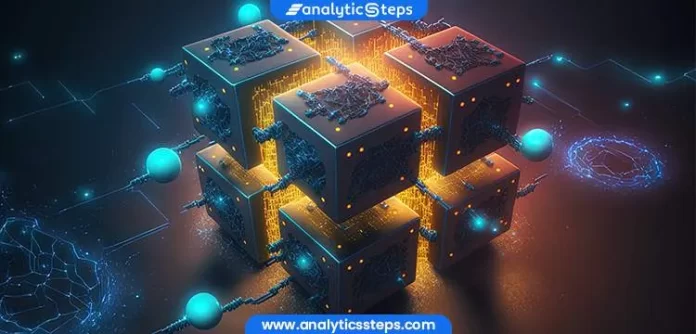Content Summary
Introduction
Blockchain technology, known for its association with cryptocurrencies, has evolved beyond its initial applications. Its decentralized and secure nature has paved the way for a wide range of use cases across various industries. In this article, we will delve into some of the most prominent blockchain use cases that are transforming the way we do business, manage data, and interact with the digital world.
1.Cryptocurrencies and Digital Assets
Blockchain’s most well-known application remains cryptocurrencies, with Bitcoin being the pioneering example. Blockchain technology enables secure and transparent transactions, making it the foundation of a decentralized financial system. In addition to Bitcoin, thousands of other digital assets have emerged, providing various use cases from store of value to utility tokens for specific platforms.
2. Supply Chain Management
Blockchain’s ability to record and verify transactions in a tamper-proof manner has revolutionized supply chain management. It enables end-to-end visibility, reducing fraud and ensuring product authenticity. Companies can use blockchain to track the movement of goods from manufacturer to consumer, helping in quality control, real-time monitoring, and improving overall efficiency.
3. Smart Contracts
Smart contracts are self-executing contracts with the terms of the agreement written into code. Blockchain platforms like Ethereum facilitate the creation and execution of smart contracts, automating various processes. These contracts find applications in insurance, real estate, and legal sectors, reducing the need for intermediaries and associated costs.
4. Healthcare Data Management
In the healthcare sector, blockchain is being employed to secure and streamline the management of patient records. Blockchain technology ensures data integrity, privacy, and interoperability among healthcare providers, giving patients more control over their medical information. This use case enhances the accuracy and accessibility of health records.
5. Voting Systems
Blockchain can be used to create secure and transparent voting systems. By storing votes on a decentralized ledger, it can reduce electoral fraud and provide a tamper-proof voting history. This use case has the potential to transform the way elections are conducted, making the process more trustworthy and efficient.
6. Intellectual Property and Copyright Protection
Blockchain is changing the way intellectual property rights are managed. Artists, musicians, and content creators can register their work on a blockchain, creating an immutable record of their ownership. This use case helps protect the rights of creators and ensures they receive fair compensation for their work.
7. Cross-Border Payments and Remittances
Cross-border payments and remittances often involve high fees and lengthy processing times. Blockchain technology can expedite these transactions, making them more cost-effective and secure. Platforms like Ripple and Stellar are making significant strides in this domain.
8. Real Estate and Property Management
Blockchain can streamline property transactions, reducing the complexity of buying and selling real estate. It offers a transparent and secure way to track property ownership, ensuring the integrity of land records. This use case has the potential to transform the real estate industry.
9. Food Safety and Traceability
Blockchain’s transparency and immutability are invaluable in ensuring the safety and traceability of food products. Consumers can trace the origin of food items, and companies can swiftly identify and address issues in the supply chain, such as contamination or spoilage.
10. Identity Verification
Blockchain-based identity solutions offer a secure and user-centric approach to identity verification. Users can have control over their personal information, sharing it selectively when needed. This use case can reduce identity theft and enhance data security.
11. Gaming and Digital Collectibles
Blockchain has given rise to the concept of non-fungible tokens (NFTs), which are unique digital assets. NFTs have found applications in the gaming industry, allowing players to own and trade in-game items and digital collectibles. Blockchain ensures the authenticity and ownership of these assets.
12. Energy Trading
Blockchain is being used to enable peer-to-peer energy trading among users with renewable energy sources. It allows producers to sell excess energy directly to consumers, bypassing traditional utility companies and promoting sustainability.
Conclusion
Blockchain technology is not limited to cryptocurrencies; it has branched out into numerous industries, offering innovative solutions to age-old problems. Its decentralized and tamper-proof nature makes it a compelling choice for businesses and organizations looking to enhance security, transparency, and efficiency. As blockchain continues to evolve, we can expect even more groundbreaking use cases to emerge, reshaping industries and the way we interact with the digital world.









